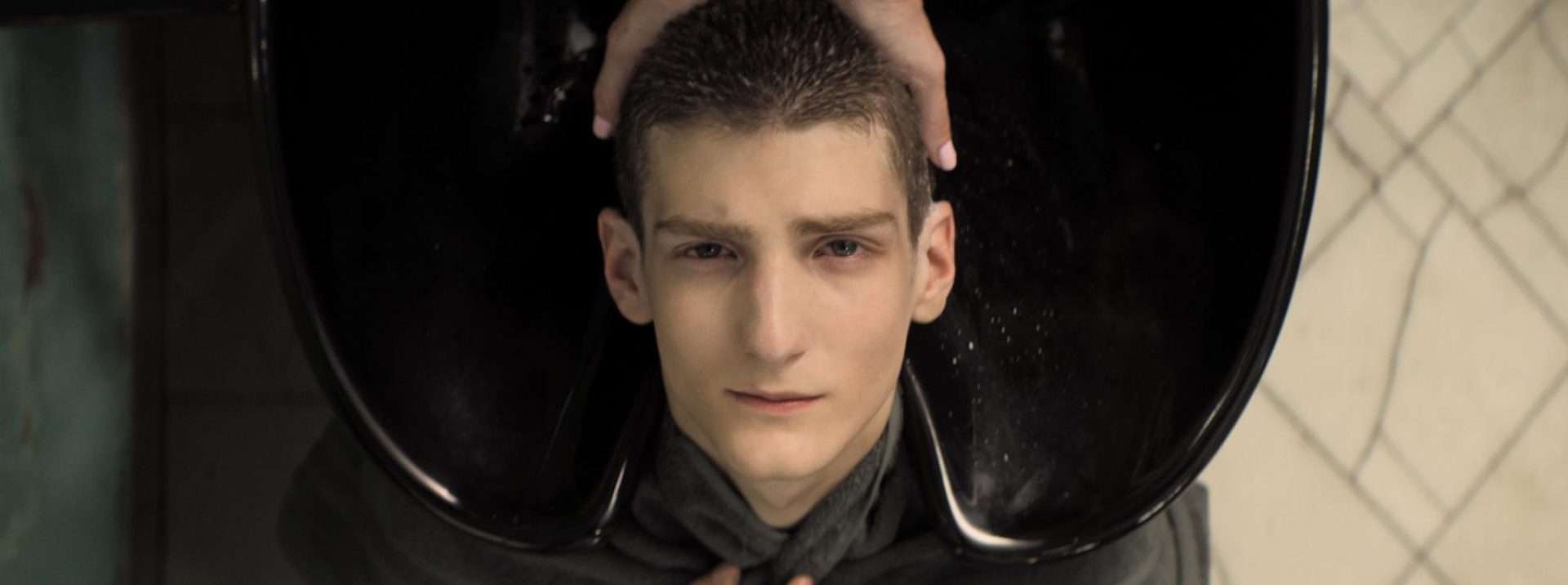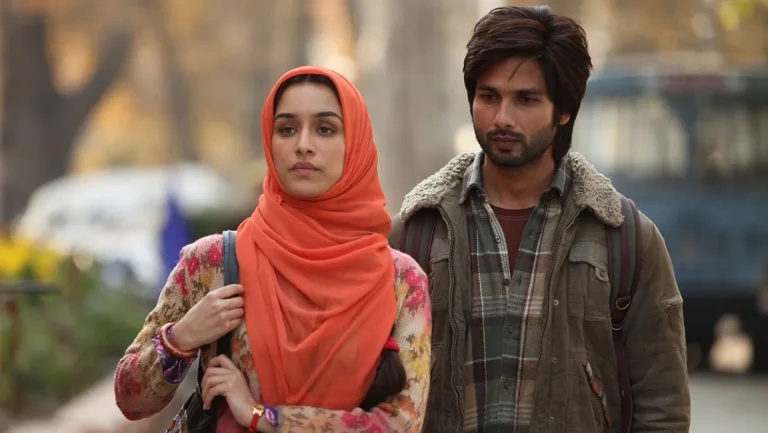Georgian filmmaker George Sikharulidze’s “Panopticon” is a debut outing without the usual trappings of one. For one, it feels thematically sculpted with precision and to a sobering impact, rarely getting caught up in a melodramatic mess of trying to be apologetic for its frequently unafraid plunges into gender, masculinity, repression, and societal hypocrisy. The director is well aware of the thorny areas he is wading into and doesn’t buckle to easy urges of rendering a treatment that’s more palatable.
“Panopticon” is an audacious confrontation. It understands that what it is excavating may be tough to stomach. It is to the credit of the film that it is secure and confident enough to court being a source of contention and something audiences will have fraught, revealing disputes over. Secondly, it comes riding on a sensational, fearless performance by Data Chachua, who plays Sandro, an unusual protagonist that may repel you, but you can’t stop watching.
Chachua has an incredibly difficult part to convince the viewer to really invest in. Now, whether we are meant to identify with or take a distance from his undesirable, raw thoughts and actions is also up for debate. Chachua’s Sandro is the hormonally-addled teenager who can barely keep his burgeoning sexual impulses together and in check.
He has his own moral conundrum that’s compounded by his father’s insistence on religiosity and sensual abstinence. All around him, the custodians of Georgian society persistently rail against the increasing Arab immigrant influence, which is denigrated as being a perverting force. Therefore, Sandro must stay super-vigilant and not succumb to any rising carnal inclinations. The orbit of supervision and control is what he’s almost always within. His father (Malkhaz Abuladze) is leaving home to join a monastery. Sandro, therefore, has just his grandmother with him. His mother is in New York, waiting for some formalities to get through so that she can bring the two over.

Sandro’s father permeates the entire house with all sorts of religious iconography. He tells his son he can worship any other figure if Jesus isn’t to his liking. But to be devout is fundamental to the very essence of being. His forbidding, watchful father exacerbates his twisting confusion over the right behavior and niceties of propriety. Sandro has a girlfriend who seeks a more passionate relationship. But he is so wrapped up in his ideas of sanctity and ideal religiously bound pure pre-marital decorum that he is hesitant to take the relationship onto any deeper physical intimacy.
It’s not that he is clear in his head about what’s proscribed and permitted. Soon in the film, he starts lusting after his soccer teammate, Lasha’s (Vakhtang Kedeladze) single mother, Natalia (Ia Sukhitashvili), sneaking off to her salon. While this equation does veer to predictable templates, Sikharulidze thankfully doesn’t set the entire film around this. Sandro can be truly reprehensible and an utter creep. He doesn’t miss a chance to grope girls on the subway. He is full of lascivious curiosity, but he cannot admit to himself the nature of his desire, which he is adamant contravenes his moral principles. His denial is immense, for his father’s instruction hovers over him like an unavoidable threat. When there’s a slim chance for his father to return home, he pushes him away, no longer being able to clamp down on his urges.
He cannot help being pulled towards Natalia. His scenes with Sukhitashvili brim with coiled-up erotic energy, the latter blending both the maternal and seductive in an inextricable bind. This fear of transgressing and the ensuing moral sinning hangs over the film. But for all its grim, murky territory, there is a strong redemptive flash. In Data Chachua’s tremendously vulnerable performance, we get a fully formed glimpse at a youth torn between the imposed and his wilful call.





![Do Not Hesitate [2021] – ‘Tribeca’ Review – An Anti-War Movie focusing on the ravages of war on the youth](https://79468c92.delivery.rocketcdn.me/wp-content/uploads/2021/06/Tribeca_Do-Not-Hesitate_1_1080p-768x432.png)


